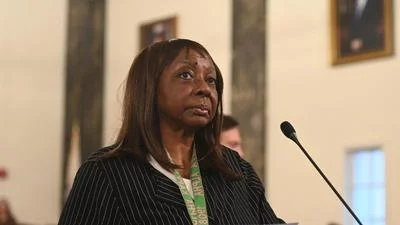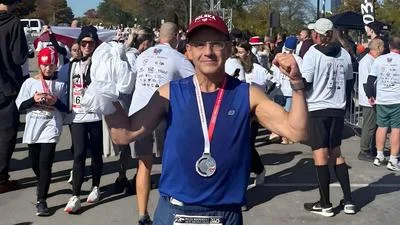Sean Morrison
Sean Morrison
Cook County Commissioner Sean Morrison wants voters to be clear about where he stands on the newly restored 6 percent tax on parking app reservations that go into effect at the start of the year.
“So everyone is clear, I was the lone ‘no’ vote for reinstating a 6% parking tax,” Morrison posted on Twitter shortly after the vote was recorded on Dec. 12.
In the end, Morrison’s opposition was hardly enough as the board overwhelmingly voted to return to a rate almost four times higher than the 1.75 percent fee that was set to become law on Jan. 1 by virtue of an ordinance passed in October.

Toni Preckwinkle
Right from the start, Board Commissioner Larry Suffredin took exception to that arrangement, instantly filing an appeal that ultimately turned into the latest vote.
"It wasn't well thought out, nor was it being fair to the taxpayer," he told Crain Chicago Business. "We need to repeal it, then put together a look at all kinds of apps to figure out how to do it correctly and treat all parkers the same."
Meanwhile, SpotHero, one of company’s hardest hit by the higher fees, blasted the vote as just another tax being slapped on the backs of already overburdened residents.
"Less than two months after setting a fair rate, the Cook County Board is aiming to reverse itself,” company officials told Chicago Business, while also stressing that they don’t own or operate the parking lots. “The Board shouldn’t second-guess itself. Commissioners need to vote against yet another tax increase in Cook County and demonstrate that they can craft and maintain rules for emerging business models that fit them and are fair."
County Board members wasted little time pushing through the new measure after the Chicago Tribune reported that Board President Toni Preckwinkle estimated the county stood to lose at least $725,000 in tax revenues.
The county has a long and less than distinguished history of coming up with a system for taxing new businesses, especially of the e-commerce variety. After more than two decades of wrangling between parties, the Supreme Court finally moved to establish that online businesses have to collect sales tax. Here in the city, officials ultimately settled on a 5.25 percent rate for cloud-computing services such as Amazon Web Services, but what to do about streaming outlets like Netflix and PlayStation remains an ongoing debate.






 Alerts Sign-up
Alerts Sign-up